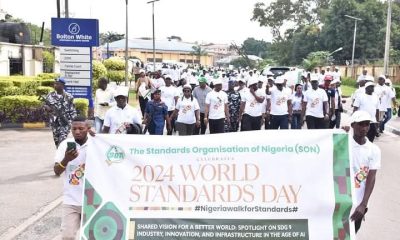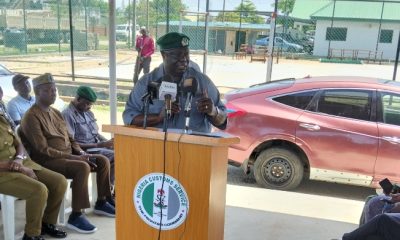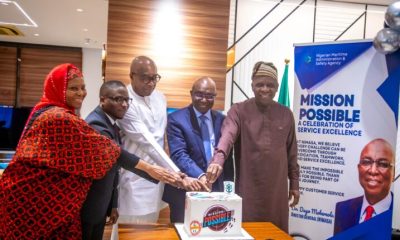…Mulls review of 2007 NIMASA Act
By Ezurike Ugochukwu
The Nigerian Maritime Administration and Safety Agency (NIMASA) has assured Nigerians that contract awards will be transparent and in adherence to Public Procurement Act. It will also be open in employment opportunities in the agency.
It’s Director-General, Dayo Mobereola, made the revelation during an interactive session with maritime journalists, in Lagos.
The DG who is meeting with the media five months after assumption of office restated that every process will align with the laid down procedures as stated in extant laws.
He said, “Recruitments will be very transparent to accommodate all Nigerians, media men alike. We will take that into proper cognizance.
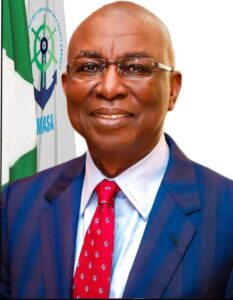
“On contract awards, I can tell you that right now, every contract we are awarding in NIMASA is in accordance with Public Procurement Act, we are not doing anything outside of the guidelines of Nigerian procurement processes.
“We will continue to elaborate that if need be. However, any information needed from us, we will make such data available. We would share and give you that information when you request for it. But every single contract award will be in accordance with laid down rules.”
Nation Update recalls that the various fraud allegations as N1.5 trillion and $9 million were traced to the account of the immediate former Director General of the agency, Bashir Jamoh, as well as infraction on award of contracts to companies he had interest.
Responding to some of the concerns raised at the media briefing such as lack of access to data and proper documentation, the NIMASA boss assured that all transactions of the agency will be through automation.
“The other day, we were looking at how United Kingdom did their own, looking at what we could learn from them and customize it to our own local situation. You can be rest assured that one of the things we are going to take away is the automation of ships registration, that must happen, and it must happen.”
He stated that his administration will not take delight in castigating his predecessors; he would strive to do better on what they have done in the past, as he will need to understand what problems facing the agency are and how to proffer solutions to them.
On issues of regulations and safety on water ways, he affirmed that the agency is currently working on a review of the 2007 NIMASA Act to tackle piracy.
The bill he said will create enable laws to monitor activities on the sea especially piracy and robbery perpetuated through smaller boats.
“Dangers of the menace that is being carried out in the maritime space are actually not done by the big vessels, they are the small boats that people are using for piracy, sea robbery and etc.
“In the new bill, we want to make sure that every boat is regulated and registered for us to know who is piloting them, where they are going to and where they are coming from. That is part of the regulations that is going to be embedded in the new bill.
The former Lagos Metropolitan Area Transport authority (LAMATA) expressed the need to meet with the National Inland Waterways Authority (NIWA) as a sister agency to synergies on how the smaller boats would be properly regulated.
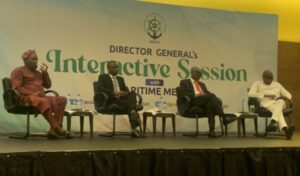 NIMASA Act 2007 also known as the Merchant Shipping Act makes provision for shipping, registration, licensing, and marking of ships in Nigeria.
NIMASA Act 2007 also known as the Merchant Shipping Act makes provision for shipping, registration, licensing, and marking of ships in Nigeria.
He also promised improvements in media relations, including the training of media practitioners, which is included in the 2024 budget. Additionally, he mentioned that the remuneration of media professionals covering the sector is under review, reflecting the agency’s commitment to fostering a mutually beneficial relationship with the press.
To the beat journalists, Mobereola urged them to continue making the industry’s issues topical and in healthy comparison with international best practices as group well abreast with the industry.
He further charged them to always initiate dialogue and collaboration in the best interest of the maritime sector and the nation at large.
The NIMASA boss enthused, “When you speak, it is perceived as being in the industry’s best interest. I encourage you to continue raising these subjects, comparing them with international practices, and advising us on what the NPA and Shippers Council should be doing.”

 Business5 years ago
Business5 years ago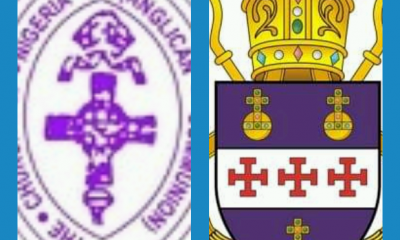
 News6 years ago
News6 years ago
 Crime2 years ago
Crime2 years ago
 News1 year ago
News1 year ago
 News5 years ago
News5 years ago
 Football6 years ago
Football6 years ago
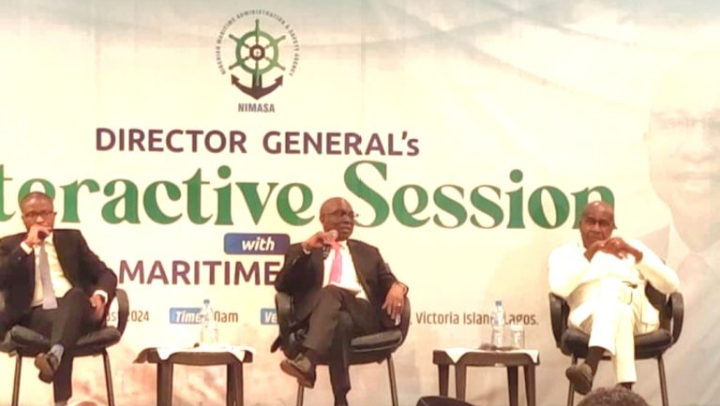


 NIMASA Act 2007 also known as the Merchant Shipping Act makes provision for shipping, registration, licensing, and marking of ships in Nigeria.
NIMASA Act 2007 also known as the Merchant Shipping Act makes provision for shipping, registration, licensing, and marking of ships in Nigeria.
